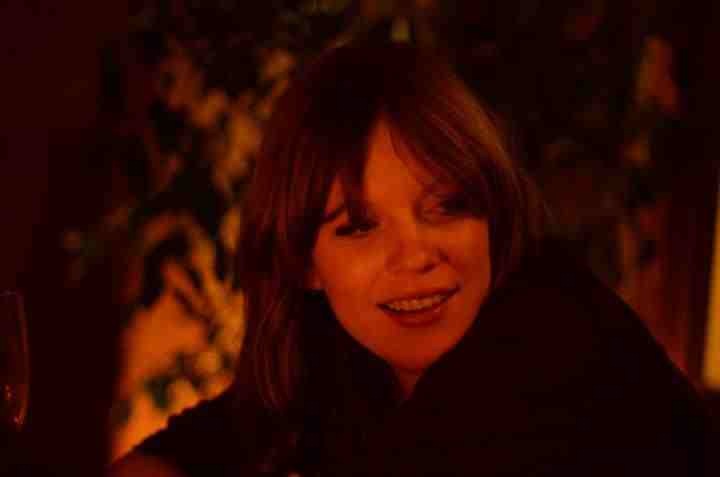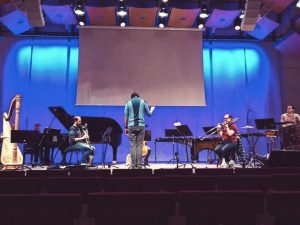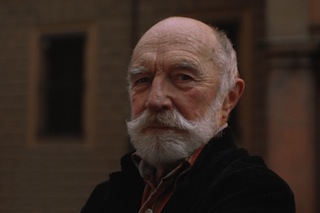
In the final of our series of five minute interviews, we spoke to Georgia Rodgers, an Islington based composer pursuing a PhD in Music at City University.
This piece has come after a year long collaboration with cellist Séverine Ballon. How did that come about, and how has it been working with her?
I was introduced to Séverine by my supervisor Newton Armstrong last October, and she was kind enough to agree to work with me on this piece. It has been an absolutely brilliant experience and a real privilege. Séverine is a fantastically talented cello player. She plays with several renowned ensembles and is also pursuing a PhD in extended cello technique. Not only that but she is a great teacher; she showed me what is possible on the cello, what works and what doesn’t. She helped me to focus on the sounds I was interested in, to concentrate on what was important in the composition, and to communicate my ideas. She is also very patient! I’ve learnt so much from her and I’m very grateful.
Your piece combines electronics with the solo cello. How are these two aural aspects interacting with each other?
Ah, well that’s the million dollar question! The electronic sounds are derived entirely from simple processing of the live cello. Everything coming out of the loudspeakers is a slightly delayed or layered version of the live sound from the stage. In fact, the question you ask – how do the electronics and live sound interact with each other – is one of the key concerns of the composition. I’m interested in how our perception of the sound of the cello is altered when we hear a mix of live and electronic versions of it. I think by actively considering what we are hearing in this way, we may learn something about our own perception, what sound is and how it behaves. So, how do the two parts interact? I’d be interested to know what the audience thinks after hearing it!
You recently had a performance of your piece ‘A to B’ which is for acoustic percussion and electronics. How does this piece relate to the upcoming piece?
Yes, ‘A to B’ was performed at City in May this year by Serge Vuille. He did a really great job. The two pieces are quite similar in terms of their fundamentals: both have a solo instrumentalist playing on stage and four loudspeakers positioned around the audience. In both pieces the electronic part is derived entirely from the live instrumental sound using simple delays, layering and some transposition. In ‘A to B’ I investigated a range of extended playing techniques, a literal hands-on exploration of the percussion instruments, exploring the different sonic textures and spaces that could be created. In this new piece I think I have narrowed the range of instrumental material and electronic processing in order to concentrate on very small changes in the sound, trying to isolate thresholds in our perception, for example when does a noise become a pitch? When does a discrete sound become continuous? When does the space shift from front to back, left to right, near to far?
On Monday, your new piece is going to be performed alongside Morton Feldman’s ‘Patterns in a Chromatic Field’. How does your work fit in with this work? Are there any direct influences?
‘Patterns in a Chromatic Field’ is a fantastic piece; I’m really happy to be programmed along side it and am looking forward to hearing Séverine and Mark perform it. I don’t think there are any direct influences from it in my piece, but I am very interested in Feldman as a composer, in particular his approach to time. Feldman said that he was interested in getting at time “in its unstructured existence…before we put our paws on it” – our perception of time as a phenomenon, before we divide it into minutes and seconds. In ‘Patterns…’ he uses slightly varying repetition, a large time scale, and other techniques to approach this. My piece inhabits a very different world sonically but one of my concerns whilst composing it was accessing the present moment, by enabling us to consider our perception of sound.
Finally, “Listen to yourself listen” is a term you have applied to some of your research. What does this mean, and how does this come into play in the new work?
Listen to yourself listen is a phrase I’m using (with some poetic license) to imply a duality of listening – listening whilst at the same time understanding what it means to listen. This is why I’m interested in exploring our perception of sound and how it changes, where the thresholds of perception happen, at what point we hear one thing as opposed to another. I think it’s important to be conscious of our perception of sound in order to approach the sound itself, to learn more about what sound is and how it behaves, as well as learning more about ourselves perceiving it.
You can hear more of Georgia’s music here: https://soundcloud.com/georgiarodgers
Her new composition will be performed by Séverine Ballon on Monday 24th June at 7pm, alongside a performance of Morton Feldman’s Patterns in a Chromatic Field.
For more information about City Summer Sounds head to: http://www.city.ac.uk/city-summer-sounds
Or follow us on facebook: http://facebook.com/CitySummerSounds







